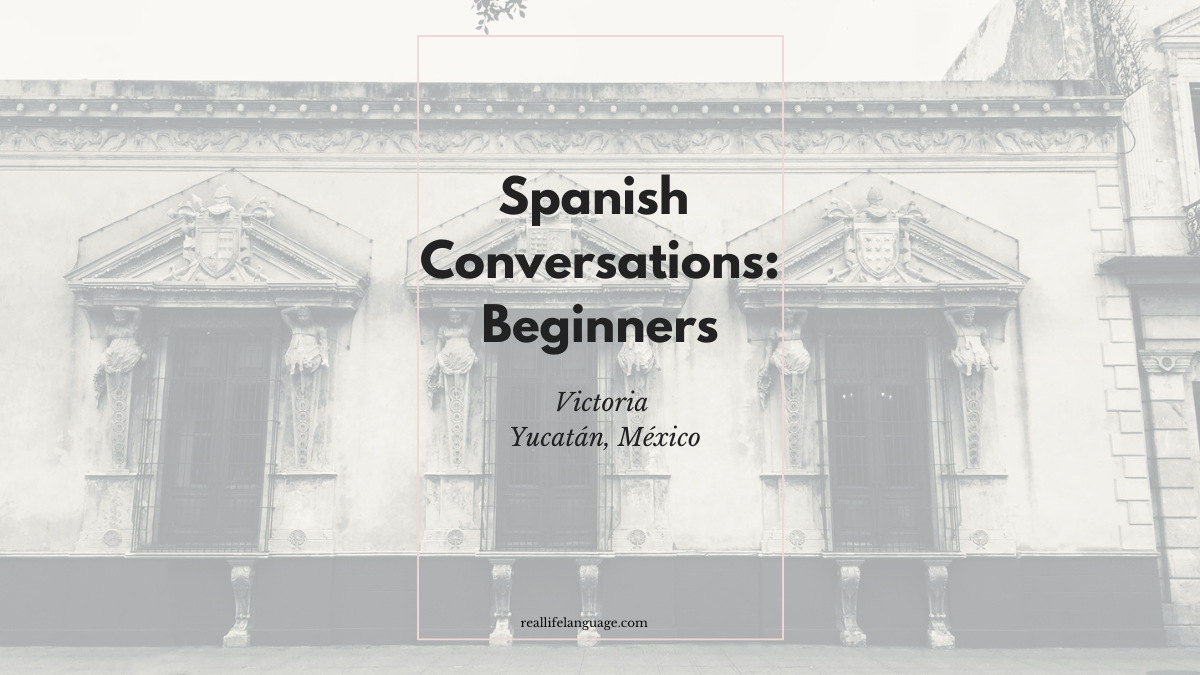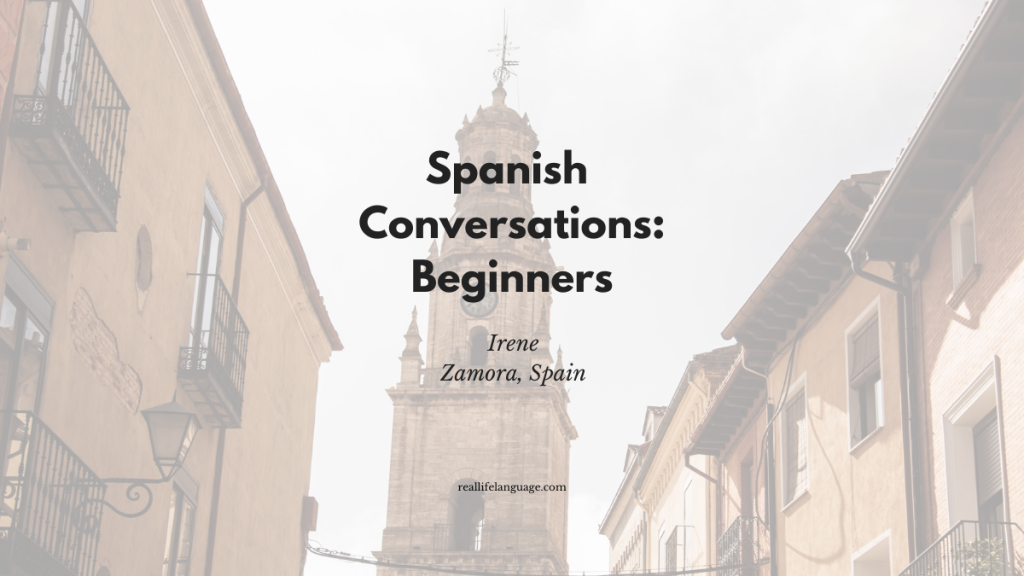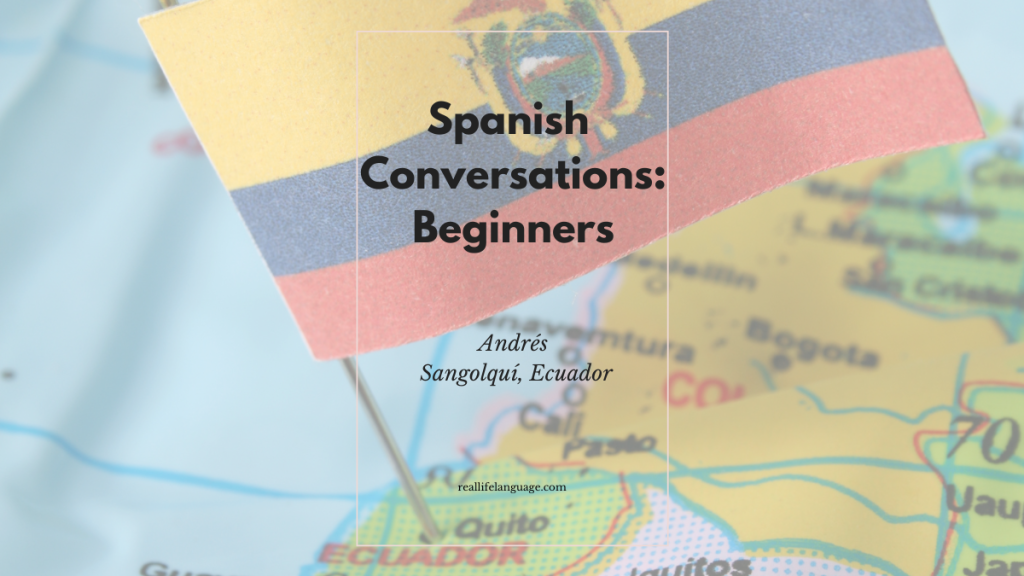
This article outlines an authentic beginner-friendly conversation to help readers learn Spanish through real-life examples. The conversation features Victoria, a 25-year-old from Mérida, Yucatán. Below is a clear, practical breakdown of the topics covered, useful vocabulary, and ready-to-use phrases learners can practise immediately.
Meet Victoria: Quick Snapshot
Victoria is 25 years old and lives in Mérida, Yucatán, Mexico. She is married, enjoys discovering coffee shops, loves reading and dancing, and spends free time with her two cats. She describes herself as proactive, talkative, curious, and hardworking. Victoria also speaks multiple languages.
“I speak Spanish, I speak English, I speak French, and a little bit of Portuguese.”
Family, Appearance & Personality — Useful Phrases
These are common questions and answers used when introducing yourself or asking about someone else.
- ¿Cómo te llamas? — What is your name? (Answer: Me llamo Victoria.)
- ¿De dónde eres? — Where are you from? (Answer: Soy de Mérida, Yucatán, México.)
- ¿Cuántos años tienes? — How old are you? (Answer: Tengo 25 años.)
- Describe tu aspecto físico. — Describe your physical appearance. (Example: Soy de estatura media, tengo ojos verdes y piel clara.)
- ¿Cómo eres? — What are you like? (Example: Soy habladora, proactiva y trabajadora.)
Daily Routine & Schedule
Victoria’s routine is ideal for learners practising the present simple and time expressions.
- Me levanto a las seis. — I get up at six.
- Hago ejercicio, desayuno y voy a trabajar. — I exercise, have breakfast and go to work.
- Tengo clases por la mañana y por la noche. — I have classes in the morning and at night.
Work, Classes & Free Time
She used to teach more hours and now balances another job with fewer class hours. Learners can practise talking about schedules and work:
- Trabajo en espacios públicos y doy clases los miércoles y jueves.
- En mi tiempo libre me gusta leer, bailar y visitar cafés.
Shopping, Food & Local Culture
Victoria enjoys local bazaars and traditional food. This section includes vocabulary for markets and typical dishes.
- Ir al mercado — to go to the market
- Ir al centro comercial — to go to the shopping mall
- Chilaquiles — a popular Mexican breakfast dish Victoria enjoys
- Tostadas y tortillas — staples in Yucatán and Mexican cuisine
Sports, Hobbies & Entertainment
Use these phrases to talk about hobbies, shows and sports.
- ¿Practicas algún deporte? — Do you play any sport? (Example: Antes jugaba voleibol.)
- Mi serie favorita es… — My favourite show is…
- Me gusta leer poesía y pasar tiempo con mis gatos.
Travel & Vacations
Victoria likes exploring local towns, cenotes (natural sinkholes) and discovering regional foods — great vocabulary for holiday conversations:
- Viajar — to travel
- Visitar pueblos — to visit small towns
- Cenotes — natural fresh-water cenotes
Practical Phrases for Learners
Ready-to-use sentences to practise speaking and listening:
- ¿Me escuchas bien? — Can you hear me well?
- Hay ruido de fondo. — There is background noise.
- ¿Puedes repetir, por favor? — Can you repeat, please?
- Hablo despacio, por favor. — I speak slowly, please.
Vocabulary Cheat Sheet by Topic
- Familia: madre, padre, hermano (half-brother = medio hermano)
- Personalidad: hablador/a, proactivo/a, curioso/a, trabajador/a
- Rutina: levantarse, desayunar, trabajar, estudiar, salir
- Compras: supermercado, mercado, bazar, centro comercial
- Comida: chilaquiles, tortillas, tostadas
Fixing Audio & Recording Problems — Useful Phrases
The conversation demonstrates troubleshooting lines learners can use in calls or recordings.
- Hay mucho ruido, ¿puedes repetirlo? — There’s a lot of noise, can you repeat it?
- Voy a cambiar los auriculares. — I’m going to change the headphones.
- Ahora se escucha mejor. — Now it sounds better.
Conclusion: How to Use This Conversation to Learn Spanish
This practical, everyday conversation offers many chances to Learn Spanish naturally: mimic answers, practise the provided phrases aloud, and use the vocabulary cheat sheet to build personalised responses. Repeating these short, realistic exchanges will improve confidence in introductions, routines, shopping, and troubleshooting audio during calls — all essential skills for beginners.
To practise, choose one section each day, memorise three phrases, and try using them in a short dialogue with a partner or language exchange buddy. Consistent practice with real-life material like this helps learners internalise common structures and vocabulary quickly.
100s of videos to learn Spanish:
https://real-life-language.kit.com/b1531a6404
Everyday Tips to Learn Spanish: Conversation with Irene from Madrid

